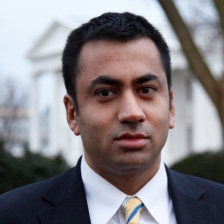
U.S. Marshals: 200 years later
Frederick Douglass was appointed U.S. Marshal by President Rutherford B. Hayes in 1877, making him one of the first African American marshals.
On March 1, the Justice Department will celebrate the birth of a key federal employee — often called a landmark appointment.
Born almost 200 years ago, Frederick Douglass was appointed U.S. Marshal by President Rutherford B. Hayes in 1877, making him one of the first African American marshals alongside Bass Reeves.
 Douglass was revered as a leader, but his legacy is only one story of the U.S. Marshals.
Douglass was revered as a leader, but his legacy is only one story of the U.S. Marshals.
The agency within the Justice Department has played a key role in history since the presidency of George Washington.
The U.S. Marshals have held many functions: From escorting children, like Ruby Bridges, to school during times of integration to providing protection for civil rights leaders such as Martin Luther King, Jr. to doing their duty to protect federal and city buildings during riots.
But the appointment of Reeves and Douglass were seen as a step up from the past.
“[Douglass’ term] was certainly well ahead of the curve in American society as far as combating racism, as far as inclusion, the U.S. Marshals had an early history of it. Not just with African Americans, but with Hispanic-Americans, Native-Americans in the 1800s. It was certainly a landmark appointment to have,” David Turk told Lauren Larson on Federal Drive with Tom Temin.
Both Reeves and Douglass have been commemorated. Cedar House, Douglass’ residence in Anacostia, D.C., is a national landmark serviced by the National Park Service. Reeves has the only African American equestrian statue in Arkansas and may have been the true inspiration for the Lone Ranger, Turk said.
The Marshals Service also played a huge role in the integration of the University of Mississippi in 1962 and the riots surrounding then a transfer student, James Meredith. In many cases, these agents have to put their lives on the line to ensure those they protect are safe.
“One of our personnel was gravely injured and almost died,” Turk said of the 1962 riots in Oxford, Mississippi. “Luckily, there was a Border Patrol man who had good medical training and was able to do a tourniquet and save his life. But he walked around with that bullet in him for the rest of his life.”
Today, the marshals are tasked with protecting the federal judicial process, conducting fugitive investigations, combating criminal activity through asset forfeiture, taking custody of federal prisoners and providing transport to and from prison, protecting the security of witnesses and most recently, conducting investigations on human trafficking and child sex offenders.
Turk dives deeper into a modern look at U.S. Marshal history in his new book, Forging the Star. The book covers the 1940s to present day.
Copyright © 2024 Federal News Network. All rights reserved. This website is not intended for users located within the European Economic Area.
Steff Thomas is a digital editor at Federal News Network.
Related Stories




